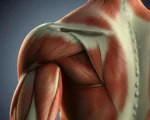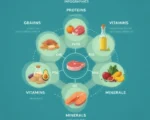Acid reflux is an uncomfortable experience many people encounter, ranging from occasional mild symptoms to chronic discomfort. But what about when you’re drinking something as simple and benign as water? If you’ve noticed that even water can trigger acid reflux symptoms, you’re not alone, and understanding the underlying causes can offer clarity and relief.
This article dives into why you might experience acid reflux when drinking water, explains potential triggers, and provides helpful tips for managing this condition.
What Is Acid Reflux?
Acid reflux occurs when stomach acid flows back into the esophagus, the tube connecting the throat to the stomach. This backflow can cause a burning sensation in the chest, known as heartburn. For some, acid reflux is an occasional nuisance, but for others, it’s a recurring issue linked to chronic conditions such as gastroesophageal reflux disease (GERD).
Common acid reflux triggers include overeating, spicy foods, caffeine, and even certain drinks. Surprisingly, even water, the simplest and most essential of beverages, can sometimes trigger symptoms.
Can Drinking Water Cause Acid Reflux?
Water itself is not acidic and does not naturally irritate the stomach lining. However, there are a few potential reasons why drinking water might contribute to acid reflux symptoms for some people.
1. Timing of Water Intake
Drinking large amounts of water too quickly or right after a meal may distend the stomach. This added pressure on the lower esophageal sphincter (LES)—a muscle that prevents stomach acid from moving upward into the esophagus—can cause acid to escape, triggering reflux symptoms.
2. Existing Digestive Conditions
If you have underlying conditions like GERD or a hiatal hernia, your digestive system is already more prone to acid reflux. Even mild triggers like water can exacerbate symptoms due to a weakened LES.
3. Water Temperature
Cold water may slow down digestion and cause the stomach to contract. This can result in pressure buildup, pushing stomach acid upward.
4. Ultra-Full Stomach
If you consume a lot of water along with a meal or shortly afterward, your stomach may become overly full. This increases the likelihood of abdominal pressure pushing acid into the esophagus.
5. Lying Down After Drinking Water
Drinking water right before lying down can also trigger symptoms. Gravity helps keep stomach acid in place, but when you’re horizontal, the risk of acid flowing back up increases.
How to Manage Acid Reflux Triggered by Water
If you’re experiencing acid reflux when drinking water, adjusting your habits may help reduce symptoms.
1. Drink Smaller Sips
Instead of gulping down large quantities of water, sip water slowly throughout the day. Gradual hydration reduces pressure on the digestive system.
2. Avoid Drinking Water During Meals
Try to separate your water intake from meal times. Drinking water 30 minutes before or after meals may help prevent an overfilled stomach and reduce acid reflux.
3. Watch Your Posture
Maintain an upright position when drinking water or eating. Avoid lying flat immediately afterward to reduce the likelihood of reflux.
4. Consider Alkaline Water
Alkaline water is less acidic than regular water, which may help neutralize stomach acid. Studies suggest it can deactivate pepsin, one of the enzymes responsible for reflux irritation.
5. Monitor Water Temperature
Avoid drinking extremely cold water. Instead, stick with room temperature or lukewarm water to minimize stomach contractions that could worsen reflux.
6. Assess the Quality of Water
Sometimes, minerals or additives in water can irritate sensitive stomachs. Filtered or distilled water may work better for those prone to acidity issues.
When to Seek Medical Advice
Occasional acid reflux is common and manageable with healthy habits. However, if you find that drinking water consistently triggers reflux symptoms, it may indicate underlying issues such as GERD, a hiatal hernia, or esophageal disorders.
Consider reaching out to a healthcare provider if you experience any of the following:
- Persistent acid reflux that occurs more than twice a week.
- Difficulty swallowing.
- Hoarseness or chronic sore throat.
- Unintended weight loss paired with reflux.
Key Takeaways
Although water is typically regarded as a neutral and safe beverage, it can trigger acid reflux in specific situations. Factors like the timing, quantity, or temperature of water, as well as existing digestive conditions, may contribute to your symptoms.
Making mindful adjustments such as sipping water slowly, avoiding meals when hydrating, or opting for alkaline water can make a significant difference. If symptoms persist, consulting a healthcare provider is important to uncover potentially more serious issues.
Do you experience acid reflux frequently? Share your experience in the comments or try one of these tips to see how it makes a difference!








